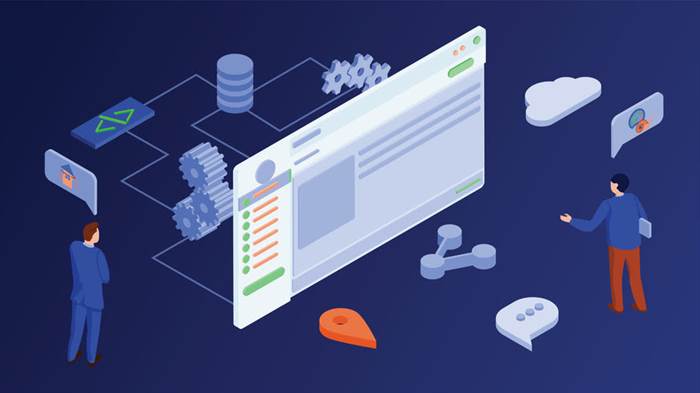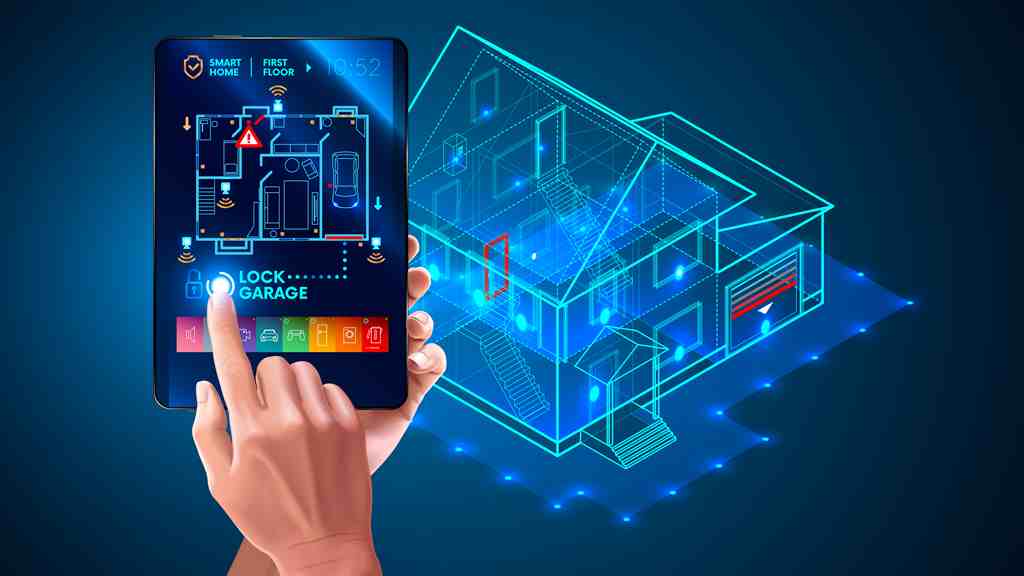As a end result, the information expertise world is undergoing an enormous shift, paving way for a significant change in IT as nicely as the need for a new structure. The platform with its intuitive interface can suit each skilled builders and customers with little technical expertise, allowing them to support numerous use circumstances. OpenLegacy, for instance, offers a simple three-step process for onboarding that offers you a complete overview of the issues you want to know to make use of the platform to its full potential. One area the place you’ll wish to search for this assist is through the onboarding course of. You must know you’ll be onboarded rapidly and simply and given every thing you need to succeed with your new device.

Hybrid integration platforms provide highly effective instruments for seamless information integration across on-premise and cloud-based applications. With HIPs, organizations could make sense of the information they generate or process and derive actionable business insights that enhance efficiencies. These options enable higher reach of data sharing in addition to enterprise processing guidelines and utility logic. IPaaS (Integration Platform as a Service) connects functions and data sources for seamless information exchange. CPaaS (Communication Platform as a Service) focuses on integrating real-time communication tools like messaging and voice providers into applications. While iPaaS manages information flow, CPaaS enhances communication capabilities, often used for customer engagement and collaboration within purposes.
8 min read – By using AI in your talent acquisition course of, you’ll find a way to scale back time-to-hire, improve candidate high quality, and improve inclusion and variety. We construct unstoppable groups by equipping DevOps professionals with the platform, instruments and coaching they should make release days obsolete. That’s doubtless a consider why, based on Gartner, at least 65% of organizations will implement a Hybrid Integration Platform (HIP) by 2022. But what precisely is a Hybrid Integration Platform, and the way can it improve efficiencies in your systems? If your target market is mid-market, or enterprise, the excellent nature of a HIP, like DCKAP Integrator, may be greatest for you. Most offer a easy drag-and-drop functionality that requires minimal programming information to operate.
Cloud Migration And Hybrid Integration Platforms Explained
Replacing legacy techniques is a long process and some information is just better off on-premises. Yet a proper strategy remains to be needed to attach varied environments to ensure high operability, efficient info change, and smooth operations. And within the context of hybrid integration it signifies that a reliable data synchronization must be ensured between all parts of a company’s hybrid cloud architecture. Within a blended setting, hybrid integration platforms make it simpler for the enterprise to take care of control. For instance, digital transformation initiatives proceed at pace, with no dependencies on vendor agreements or new equipment to realize desired agility.
Some gadgets that aren’t on this list could be unmissable for you depending on your supposed use cases, during which instance you should add these to your criteria too. Finally, and most importantly for many enterprises, hybrid integration supports an evolved and frictionless expertise for customers and partners. With a modular IT infrastructure, new applied sciences are easily implemented to elevate the customer expertise, which in turn builds loyalty and stickiness, protecting and advancing market share and profitability. A hybrid integration platform brings these techniques together, facilitating the transfer of information, while resolving challenges similar to scalability, data exposure, and unauthorized entry. Essentially, a Hybrid Integration Platform uses these 4 dimensions to offer the options you have to integrate data and purposes throughout your on-premises and cloud environments. Adeptia is a strong Hybrid Integration Platform that may assist optimize your small business processes and improve knowledge integration.

Yet some information have to stay “on the ground”, whether as a end result of regulatory or knowledge protection necessities, or simply being business-critical data remnants in not-yet-updated techniques. Hybrid integration solves the issue of taking present info from on-premises systems. It leverages new methods to make means for innovation, competitive benefit, and driving new enterprise models. The up to date enterprise offers with emerging tendencies available within the market, whereas leveraging the info and functionality of on-premises legacy purposes.
When A Case Will Get Created In Your Crm, Create A Corresponding Incident In Your Itsm
Taken together, the worker experience should improve by leaps and bounds, which should also benefit your organization in the form of improved retention, productivity positive aspects, and even greater profits. In the absence of integration, your workers are compelled to hop between functions just to reenter information. This just isn’t only tedious and unsightly to perform but can even lead to consequential mistakes, from invoicing clients the mistaken amount to provisioning the inaccurate set of apps for model spanking new hires. A message will get posted to a specific channel in Slack that has the entire project’s stakeholders. This message can include critical gadgets and data related to the duty, corresponding to any attachments, the task’s ID, title, level of importance, and so forth.
To address these challenges, Enterprise Application Integration (EAI) emerged as a centralized approach to attach applications and guarantee seamless information flow. However, the EAI mannequin was rigid and troublesome to switch, leading to the rise of the Service-Oriented Architecture (SOA) that emphasized reusable services for integration. Conversely, iPaaS offers a extra dynamic and elastic method to software integration. They excel at connecting various cloud-based functions, providing fast integration capabilities, pre-built connectors, and a user-friendly interface.
What Precisely Is Cloud Platform Integration?
With event-driven architecture, runtime and protocols are decoupled for higher scalability. It’s worth exploring them to see which purposes they support and, for every connector, the triggers and actions they’ve made obtainable. Since hybrid integration can streamline nearly all of knowledge entry-related activities, these points can, by and enormous, be prevented. It’s worth noting that you can resolve on the knowledge that’s synced between the case and the incident, such as the issue’s level of priority, description, created date, and so forth. This ensures that both teams are absolutely aligned on the problem and that key insights don’t slip through the cracks. Over the final several years the demand for new integrations has far surpassed the capability most enterprises can handle.
Such a method allows, on the one hand, to take care of delicate information within a company and, then again, to reap the advantages of as many applied sciences as attainable. Ingest, Integrate and Transform your knowledge with the next-gen ETL and ELT resolution. These kinds of options handle APIs, however their integration tooling adds middleware.
Do you remember the “good old days” of IT, when a whole enterprise might run on a single LAN, with all their business-critical applications and infrastructure hosted in a closet down the hall? Now, the tons of of techniques, knowledge sources, and platforms most organizations depend on are dispersed all through the world. Getting all these systems to communicate and work together is critical to achieving digital transformation. Its energy lies in its ability to connect with each legacy enterprise methods and newer cloud-based platforms. For occasion, a enterprise utilizing a standard ERP system alongside a contemporary cloud-based CRM would find HIP advantageous. The platform ensures that knowledge and processes flow seamlessly between these techniques.
- The platform ensures that information and processes circulate seamlessly between these techniques.
- Customers use Adeptia to devour third-party APIs, construct integrations on top of APIs, and expose their very own inside providers as APIs for frictionless ecosystem connectivity.
- It’s deployed across public (multi-tenant) and private clouds to provide a unified view of insights; likewise, it could help scrub incomplete or inaccurate entries from a database.
- If it doesn’t cowl the full life cycle, you can’t handle each of these steps equally effectively.
- Hybrid Integration Platforms enable IT and business groups to work collectively extra effectively by providing a unified platform for managing integrations.
In the context of a HIP, API management usually leans in the path of a extra versatile strategy, accommodating each legacy techniques and newer cloud-based functions. This means that companies can manage APIs that are hosted on-premises and within the cloud in a cohesive integration technique https://www.globalcloudteam.com/. Unlike Software as a Service (SaaS), which is delivered over the web, an iPaaS is a cloud-based integration resolution. Considered a low-code treatment for knowledge integration, an iPaaS is an API-driven resolution to create and handle connections between a number of SaaS systems and cloud applications.
How Can A Hybrid Integration Platform (hip) Improve Efficiencies In Your Systems?
An integration governance feature ensures HIP integrations adhere to an current structure. The structure of a Hybrid Integration Platform allows data to reside in the cloud or within a business’s personal infrastructure. It has been designed to deal with diverse and complex information sources, whether or not they’re IoT gadgets, legacy methods, or cloud-based companies. A Hybrid Integration Platform (HIP) is a solution to attach purposes, knowledge, and workflows over multiple systems throughout on-premises (physical) and cloud-based (digital) environments.
It could be deployed as a real multi-tenant cloud answer, a personal cloud, or an on-premises knowledge solution. As for the hybrid integration architecture, now that we established what hybrid cloud “consists” of, it’s easy to see that in phrases of hybrid integration, it is principally the same concept. The complete point of assorted environments being connected is that knowledge can move freely between them. In actuality, though, you must additionally think about not solely your personal environments, but also partners environments, too. This is why you have to outline a proper hybrid integration technique proper from the beginning. All your data and software logic needs to be exposed or transferred out of your old techniques to your new, cloud-based options.

Therefore, companies can rapidly adapt to emerging technologies, new guidelines and processes. A hybrid integration strategy is particularly relevant for corporations with numerous companions and department places of work, as they usually what is a hybrid integration platform generate a nice deal of recordsdata to share. Crosser is a hybrid-first platform that in a single Low-code platform has all the capabilities that you historically would wish a number of techniques for.
Streamlining Buyer Experience
Hybrid Integration Platforms (HIP) bridge the gap between totally different applications, software program, and companies to make sure seamless connectivity and efficient information management. These platforms play a vital function in modern companies by streamlining workflows, making knowledge readily accessible for informed decision-making, and simplifying utility improvement and deployment. DCKAP Integrator is an integration answer constructed specifically keeping distributors in thoughts. The software acts as a single platform for integrating multiple software program functions.

On the other hand, iPaaS is inherently designed to facilitate seamless connections between numerous cloud providers. It provides a plethora of connectors for in style cloud platforms, ensuring that companies can rapidly and effectively integrate various cloud solutions. Its cloud-native architecture means that iPaaS is inherently outfitted to handle the nuances and dynamism of cloud ecosystems making it a secure selection for businesses which would possibly be absolutely dedicated to a cloud-first strategy. Not to say, as the large information wants pushed by digital transformation proceed to evolve, the hybrid cloud surroundings must continuously adapt.
